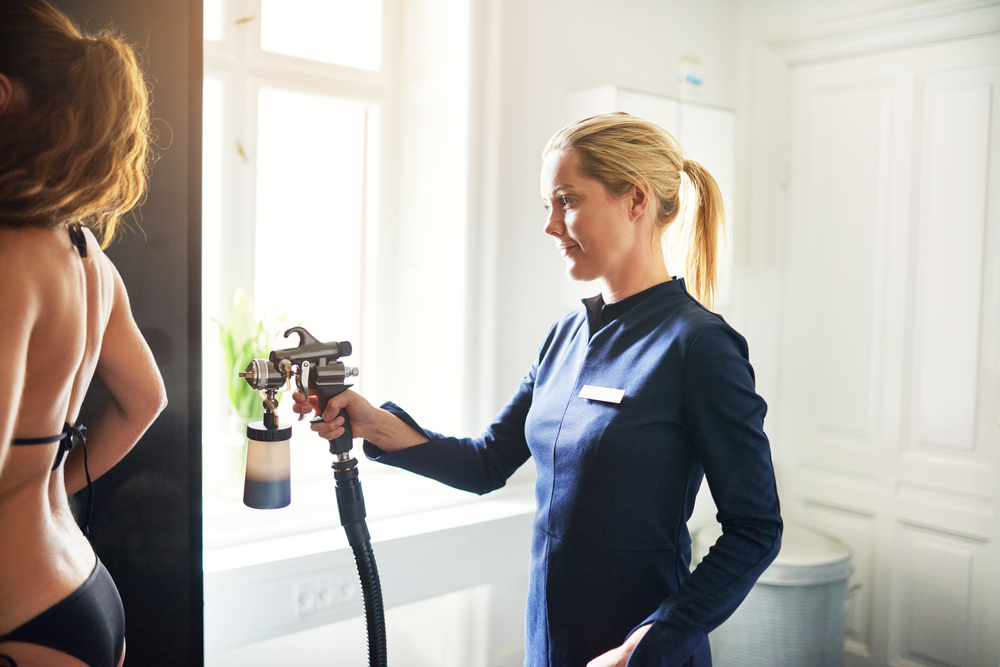Considering cosmetic procedures to enhance existing physical appearance may be overwhelming, but choosing the right plastic surgeon matters. Generally, many people spend a lot of time discussing and researching the procedure and the potential results, but seldom about the plastic surgeon.
In plastic surgery, the crucial factor is selecting the right plastic surgeon. Not only does this choice determine your safety, but also the desired outcome of your surgery.
While choosing a plastic surgeon, you may have to consult several surgeons or get referrals through primary care physicians, family, and friends. While it may seem tedious, don’t neglect these necessary steps because you need to live with this decision for life.
Must-Knows Before Choosing A Plastic Surgeon
A well-experienced and skilled plastic surgeon would perform safe, aesthetically pleasing work, whereas an inexperienced surgeon may cause you harm that could last all your life.
Hence, following a list of guidelines can help you find the right plastic surgeon.
1. Board Certification/Credentials
Understanding medical credentials can often be confusing, especially if you are clueless about medical jargon. When it comes to plastic surgery, there is one key thing to look for, certification or credentials by the American Board of Plastic Surgery (ABPS) or Royal College of Physicians and Surgeons of Canada.
Plastic surgery is a very complex specialty and necessitates years of education and training. The board certification helps you ascertain that the physician has the required skills and experience to perform cosmetic procedures.
The ABPS certification signifies that the physician has undergone at least six years of surgical training, two to three years of commitment in specializing in plastic surgery, gone through rigorous written and oral examinations, and manifested safe and ethical surgical practice.
You may also find details about disciplinary actions or malpractice claims against any surgeons.
2. ASAPS Membership
You can also check if the surgeon you are reviewing has a membership with the American Society for Aesthetic Plastic Surgery (ASAPS). The members of ASAPS are highly qualified plastic surgeons committed to maintaining the highest clinical standards within a safe and caring environment.
To qualify for the membership, physicians need to complete vigorous training and have in-depth knowledge about patient safety standards.
In the ever-changing cosmetic industry, consumers are flooded with a wide range of physicians with varying levels of expertise and training to choose for their needs. Through this, you can prevent yourself from falling into the hands of untrained plastic surgeons.
3. Experience
Experience is crucial while considering aesthetic plastic surgery. Experienced plastic surgeons regularly perform a wide range of cosmetic surgeries. There are different areas of cosmetic surgery that require different skills, and some surgeons may have subspecialties within the field.
Choose a surgeon who has substantial experience doing the type of surgery you are considering. The more experienced a surgeon is in any particular procedure, the better the desired outcomes. Hence, choose a surgeon whose specializations are in line with your expectations.
Experience can help prevent surgical complications and also enable the surgeon to promptly identify them even if they occur. Also, inquire about the complication rate that is both specific to you as well as to surgery.
You can ask a surgeon a few questions, including:
- Are you trained in the technique I am considering?
- How experienced are you in performing this procedure?
- How often do you perform this procedure?
- How many patients have you come across with a similar situation like mine?
4. Accreditation of the Operating Facility
You must ensure the operating facility is properly accredited since most cosmetic procedures are performed in office-based surgical facilities or ambulatory care centers. An accredited facility will follow strict standards and have surgeons and staff with the right credentials and proper equipment and safety.
Hence, it is significant to ensure that the plastic surgeon you choose has an accredited facility. To narrow down the search process, you can select a surgeon through ASAPS since they operate in accredited, state-licensed facilities.
5. Hospital and Operating Privileges
Review committees in hospitals meticulously assess a surgeon’s training and capability for specific procedures before allowing operating privileges to a surgeon.
Hence, before the surgery, ensure to ask if your plastic surgeon has operating privileges to perform the considered procedure in an accredited hospital. These privileges are provided after they undergo rigorous processes where their peers approve their credentials. It is not the case in office settings, which often have little to no oversight.
6. Reliable References
You can start by discussing with your primary care physician for reliable recommendations. You may also inquire with your friends for suggestions, but ensure to verify a plastic surgeon’s board certification yourself through the American Board of Plastic Surgery portal.
Looking for other perspectives is always recommended. You can also seek consultations and second opinions from other board-certified plastic surgeons to confirm that the treatment specified for you is right or to decide among the suggested options.
7. Thoroughness
It is vital to have a thorough discussion with your surgeon and have all your questions about your considered cosmetic procedure addressed before committing to the procedure. It includes reviewing your medical history and your present medical conditions that may interfere with the procedure. It would serve if you had a frank discussion about all the risks and benefits involved so that the surgeon can develop a custom-made surgical plan that meets your requirements.
8. Rapport
Experience and credentials need not be the only deciding factor behind choosing the right surgeon for you. Sometimes, even the most experienced surgeon may not be the right fit for you. Like any other relationship, a relation between the doctor and the patient is highly dependent on good communication.
It may take a few attempts before you find the right plastic surgeon. The course of your surgical journey begins when you can honestly discuss your final goals and views while agreeing on realistic expectations. A good rapport between the surgeon and other staff members can make all the difference between a great plastic surgery experience and a satisfactory one.
When you can freely share your concerns and worries, it can help you layout your aesthetic goals related to the desired outcome and discuss your lifestyle and overall health along with any other queries you may have. When you share a good rapport, you will feel more confident about your surgery as you can have honest discussions with your surgeon.
Apart from this, a surgeon with whom you share a good connection will be able to provide you with a realistic timeframe for recovery based on your medical history.
9. Follow-Up Care
A great surgeon will ensure that you are provided with enough follow-up care to help you through the recovery process because good surgical care goes beyond surgery.
Discuss follow-up visits post-surgery and the methods that are in place for handling complications. Also, ensure to ask about surgical revision policies should it prove to be necessary.
10. Aesthetics in Alignment
Along with the appropriate medical training and knowledge, cosmetic surgery entails some level of artistry as well. Since every person’s body is unique, the treatment should be tailored accordingly to suit your situation and unique body goals. It is one reason you can’t choose surgeons based on top reviews or Google results.
You may ask for the before and after photographs of the surgeon’s patients to better understand their work. While reviewing those images, make sure they are in the same lighting and angle.
During consultations, never hesitate to ask for additional pictures, patient testimonials, or case studies. You can also look for reviews on patient forums regarding their experiences with potential surgeon candidates, as they are usually honest and trustworthy.
Once you have shortlisted the surgeons based on their credentials, take a look at their post-surgery photos. Look for photographs that are closely in line with your own aesthetic goals.
11. Address Expectations in the Beginning
Although we don’t like hearing a “No,” it’s important that your surgeon lays out an honest opinion about their treatment, regarding what is possible and not possible, depending on your anatomy and specific concerns.
Additionally, they should also clearly explain the pre and post-surgical procedures and address any other queries you have concerning the results and recovery.
12. Risks and Complications
Any surgery, however minor it may be, will involve some form of risks and complications. Hence, ensure to discuss all the possible risks associated with the procedure and discuss the surgical revision policies should any complications occur.
13. Ask Real People
Though online reviews are reliable to a great extent, word-of-mouth referrals are always more powerful than any online forum or advertisement. If possible, try to seek out recommendations from friends and relatives who have been to the surgeon before.
14. Reasonable Cost
Depending on your location, your individual needs, and the surgeon’s experience, costs may differ considerably. Since various patients need different treatments and techniques, the length of the surgery, complexity and related costs differ.
Therefore, you must do extensive research to ensure that you choose a medical facility and a plastic surgeon who charges reasonable rates.
15. Know What Your Insurance Covers
Health insurance policies seldom cover the cost of cosmetic surgeries, and you may end up paying the entire amount out of your pocket.
However, it is always better to discuss the matters with your surgeon and choose a plastic surgeon who is willing to participate in your plan.
Some procedure costs may get covered by your workplace insurance policies. A few other plastic surgeries, which involve fixing congenital disabilities or severe burns, may get partially or fully covered by health insurance.
Summary
Considering cosmetic surgery may be exciting, but choosing the right plastic surgeon is what matters. We hope the list of must-knows may help you gain valuable insights through your search for the right plastic surgeon before committing to any cosmetic procedure.
Down the line, a successful surgery will not only help you feel more like yourself but will also give you greater confidence. On the contrary, when you choose an inexperienced surgeon, it can result in undesired outcomes while leading to increased costs, additional time, and not to forget, anguish and despair.
Hence, ensure to do enough research before you choose your plastic surgeon to avoid unnecessary hassles.









